One of the conditions that could befall any egg-laying chicken is becoming egg-bound. Since it’s possible that your chicken could die from this condition, it’s important to know how to determine if your chicken is egg bound and how to help them. This guide will inform you of everything you need to know about an egg bound chicken.
What Is an Egg Bound Chicken?
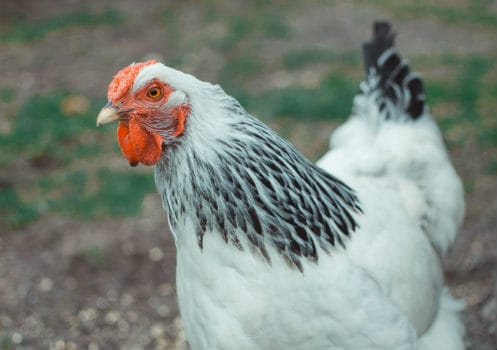
Hens typically lay several eggs in a week. Those that lay a lot of eggs have a high chance of becoming egg bound, though this is a condition that can affect any hen. Being egg bound describes a situation in which the egg is unable to leave the hen’s oviduct.
Instead of passing through the oviduct and exiting her body, your hen has an egg stuck in her body. This can be a life-threatening situation for a hen. If you suspect that your hen may is egg bound, the first step you should take is to transport her to your local vet.
In the event that you don’t have a vet near you, then you may need to remove the egg yourself.
How Do You Treat an Egg Bound Chicken?
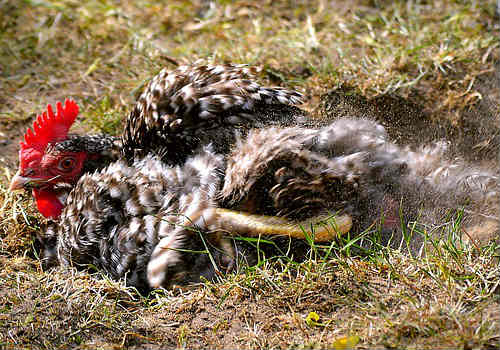
There are a few methods for which you can treat an egg bound her. The first is preventative. You can increase their calcium intake as this is a requirement for strong eggshells. You can do this through an injection, feeding them vitamins, feeding them an electrolyte solution, and adding in calcium to their regular feed.
If you have an egg bound hen, consider the following methods to help her:
- You can give her a warm bath. This can help loosen her body and allow her muscles to work better.
- You can also apply KY Jelly to her oviduct to make it easier for her to push the egg out of her body.
- You could also massage your hen to help her relax.
Causes of Egg Binding

As a chicken owner, one of the first steps that you can take for promoting a healthy environment for your chickens is understanding how egg binding can occur. By limiting those factors, you can help prevent egg binding from occurring.
There are a few factors that can lead to egg binding. The first is calcium deficiency or another nutritional deficiency. When a bird doesn’t have enough calcium in its body, the egg that they create is a softer shell than it should be.
When it comes to lay the egg, the muscles that grip against the egg and push it out are unable to properly grip it. Instead, the muscles deform the egg.
Another reason that a hen might become egg bound is that it’s obese. With hens being used more as a pet or for a hobby in egg-laying, they’re not given the best diets. It’s human nature to spoil your pets and feed them lots of treats.
[amazon bestseller=”vitamin b12 for chickens”]
However, all of those treats can lead to obesity in your chicken. As a result, they’re unable to pass an egg easily through their oviducts. Obesity, on its own, can make the oviduct passage smaller. It can be more difficult to pass an egg through a narrower passage.
Obesity can also lead to problems with developing the egg’s shell. It may be deformed during its production and make it, so the muscles are unable to properly grip it and push it out of the hen.
A third factor that can lead to a chicken being egg bound is if the egg is unusually large or misshapen. Sometimes, an egg can become too large. That makes it impossible to pass through an oviduct.
This could be a serious problem for the chicken because an oversized egg can rip their oviduct as it’s attempted to pass through it. Those ruptures can become infected and cause them to become ill.
A fourth factor is an oviduct infection. Sometimes this can be because of a previous egg-laying attempt that ruptured the oviduct a bit. Those ruptures became infected, which makes future egg-laying attempts impossible. It can also cause your chicken a lot of pain.
Another reason for an oviduct infection is either bacterial or viral. If the chicken becomes ill due to a common chicken cold or flu, it could spiral into something more serious.
When a chicken becomes sick, its body becomes inflamed. This inflammation can spread to the oviduct. This, alone, can cause problems for egg-laying because the oviduct becomes smaller. Eggs that would normally be able to pass through the oviduct may no longer be able to do so because of the inflammation.
Yet inflammation also causes the walls of the oviduct to become layered with pus. This pus is supposed to help limit the spread of the infection. Yet it can also cause other problems for laying eggs. A chicken tends to lay lash eggs when suffering from an infection.
Lash eggs are soft eggs that are filled with pus and other fluids rather than the yolk. If your hen starts to lay lash eggs, then they could be at a critical point in their health. Those lash eggs can sometimes be stuck inside of the hen for some time.
That duration can further cause the hen to become ill.
Another factor for egg binding is premature laying. This occurs when the hen starts to lay eggs before she is actually mature enough to do so. Her body may not have developed enough to lay eggs.
The oviduct may not be fully formed or the walls of it may not have grown the protective layer it needs to safely pass eggs through it.
If a hen starts to lay eggs before she’s ready, those eggs may also be deformed or not fully formed. This can also cause her oviduct to become damaged.
One final factor that can play into your chicken becoming egg bound is if the hen tends to practice egg retention. This is a situation in which the hen refuses to lay her eggs because there isn’t a nesting area available.
Your hen may not recognize a space as a nest and so feels that she has to hold onto the egg until a nest is properly formed. If she does this a few times, then her body might develop a habit of holding onto the egg instead of laying it.
Egg Bound Chicken Symptoms
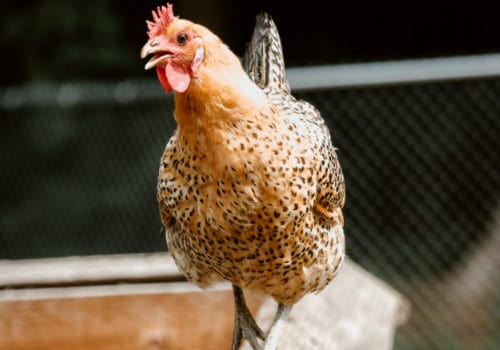
Because your chicken can die from being egg bound, it’s important to recognize the symptoms of egg bound hens. It’s also important to understand the reproductive system of the chicken.
If you know where and how hens form and pass their eggs, you’ll have a better idea of where to reach and help if she’s bound.
[amazon bestseller=”chicken automatic feeder”]
One of the symptoms that you may notice with your egg bound chicken is a loss of appetite. They may not join the others in foraging. Or they might choose not to eat and walk around instead.
This is likely due to the reason that they are becoming overloaded. If they eat more food, they won’t be able to pass it through their bodies. They may also feel ill. So, they won’t want to eat.
Another symptom is a lack of interest in drinking. Because they’re unable to pass anything through their bodies, they won’t want to drink either. This is problematic in itself because dehydration can occur quickly within your chicken.
Dehydration can cause a lot of other problems for your hen. They might pass out, become overheated, or have an even more difficult time laying their egg.
A third symptom is a decrease in their activity. There are numerous reasons for this symptom. A lot of the hen’s energy is going to be put towards trying to expel that egg from her body. Because she’s taking in less food and water, her energy levels will also be down.
Walking around may also cause her physical stress and pain, so she might choose to merely lay in her nest. Because she knows she has an egg inside of her, the hen may also not want to leave the nest until it’s been laid.
If your chicken is typically energetic and walks around her pen a lot, but suddenly no longer is as active, then she may be egg bound.
A fourth symptom is shaky wings. This describes behavior in which her wings slightly shake. This can occur either when she’s walking or laying in her nest. It could be a reactionary impulse as the chicken strains to pass the egg through her oviduct.
The fifth symptom is also physical. How the hen moves could be indicative of her state of health. If she’s walking like a penguin, waddling in other words, then it may be because of an egg that’s stuck inside of her body. The weight of the egg could be causing her to have to move with difficulty.
You may also notice that your chicken is performing a lot of abdominal straining. Since your hen is going to be exerting a lot of energy and force to expel the egg from her body, you may physically notice abdominal straining. Her belly might be pushing in and out in an attempt to exert force against the egg.
You can also place your hand against her belly and gently feel if she’s trying to push. The area may be taut.
A seventh symptom is a situation in which the hen does a lot of sitting. She may be walking around and then suddenly sit on the ground. She may even be foraging and end up sitting down frequently. If you find the behavior to be unusual or too frequent, then it could be a sign that she is egg bound.
You can also examine her droppings to determine if she is egg bound. A symptom is if she has wet droppings or even no droppings at all. The egg can completely block the ability to defecate. If anything is passed through, it has to be wet because it’s the only kind of defecation that can squeeze past the egg.
The physical appearance of the chicken may also become droopy. Their comb and wattles can become droopy, pale, or depressed looking. They tend to look like they’re withering. This can be due to the lack of nutrients that they’re receiving when they don’t eat properly.
If an infection is to blame for the egg binding, then the disease could be causing the chicken’s feathers and comb to wither.
One last symptom is the presence of an egg in the oviduct. This can be determined through a careful exam of the area. A vet is usually the one that should perform this examination. Otherwise, you might injure your hen further by clumsily prodding around.
However, if you are trained in examining the oviduct, or you take the time to carefully learn the reproductive system of a hen, then you can perform the exam for yourself and determine if an egg is stuck inside of the oviduct.
Egg Bound Chicken Death
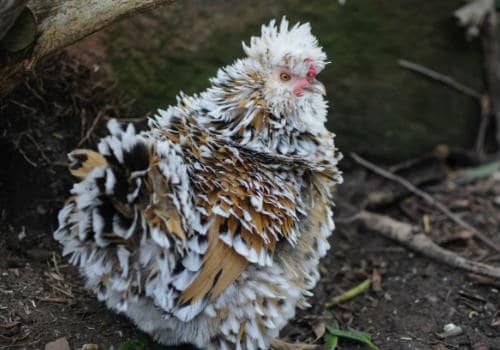
There are many dangers that stem from being egg bound. Your chicken could suffer from infection, bleeding, damage to the oviduct, and a prolapsed uterus. Unfortunately, death is also possible.
The oviduct can become infected which can cause the chicken’s health to deteriorate rapidly. The egg, itself, can rupture inside of the chicken and also cause an infection to occur.
If the chicken continues to refuse to eat and drink, then they could starve themselves to death or die of dehydration.
Can an Egg Bound Hen Poop?
A hen who is egg bound cannot typically defecate. They’re unable to pass solid waste around the egg, and so the blockage can cause further health problems for them. Wet droppings can sometimes pass around the egg. It’s rare for them to defecate, however.
How Long Can an Egg Bound Chicken Live?
Once a chicken becomes egg bound, they usually have 24 to 48 hours to live. Sometimes it can be longer if they don’t become infected. Yet usually an infection occurs, and this can significantly decrease their health, and the time they have yet to live.
[amazon bestseller=”chicken food”]


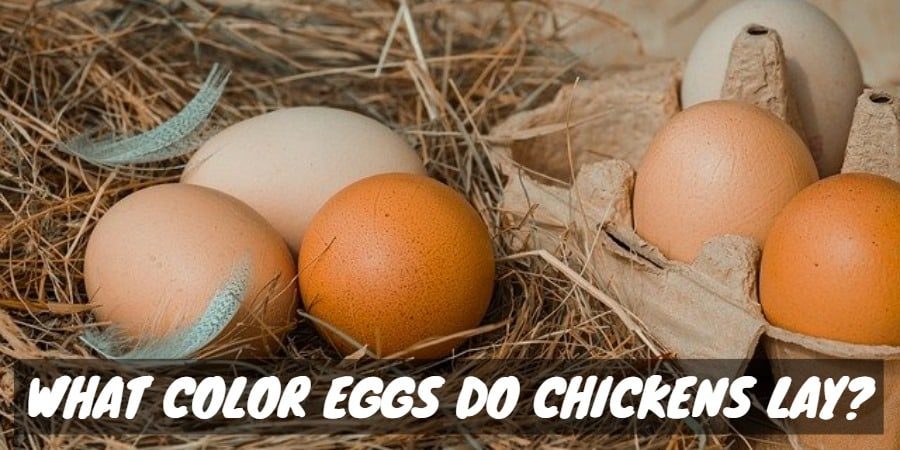

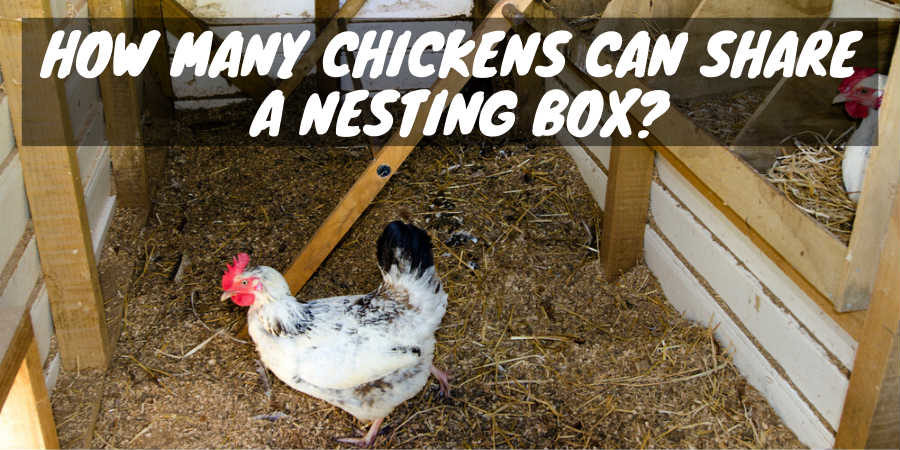
I have an egg bound chicken what do I do to help
I have a egg bound chicken and have been doing the baths and massaging her belly, she was drinking but now isn’t. Today is day 3 and she isn’t looking good and has yet passed the egg. No vets in our area tend to chicken’s. So what you do??